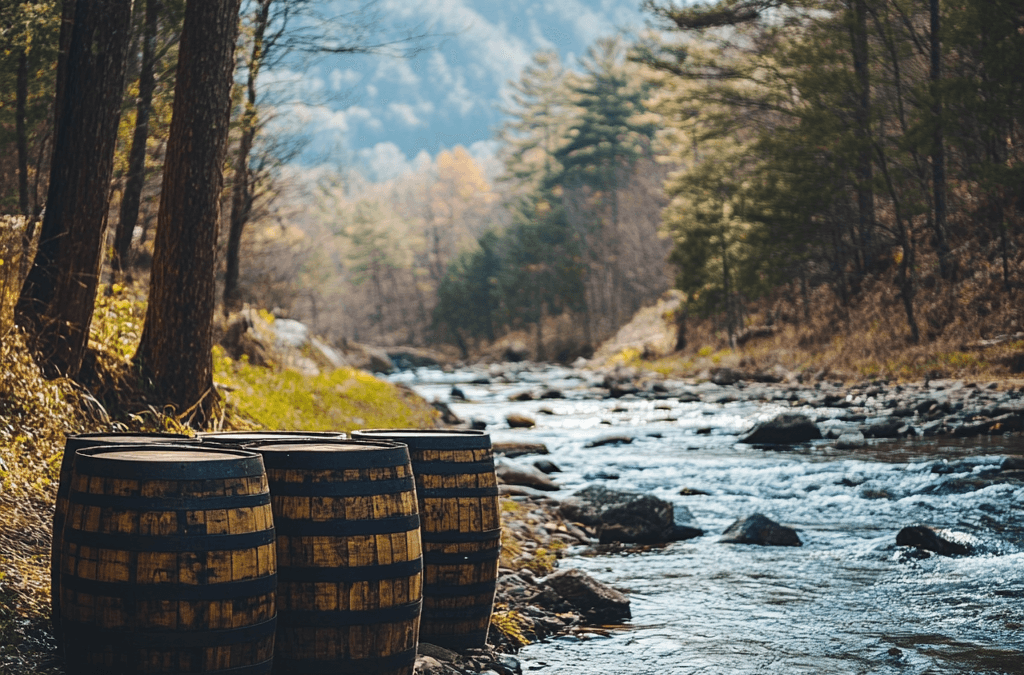Water in craft distilling is one of the most overlooked yet essential ingredients in producing high-quality spirits. From mashing and fermentation to proofing and dilution, the quality and composition of water in craft distilling significantly impact the final product. Understanding the role of water in craft distilling helps distillers optimize their processes and create superior spirits.
Why Water in Craft Distilling Is Important
Water in craft distilling is more than just an ingredient—it’s a fundamental component that affects every stage of production. Water’s mineral content, pH balance, and purity influence yeast activity, alcohol extraction, and the overall character of the spirit. Distillers who pay attention to water quality can enhance their products’ flavor, consistency, and smoothness.
Water Sources and Their Effects on Distilling
Craft distillers source their water from various locations, each with unique characteristics:
- Spring Water – Naturally filtered through rock, often contains balanced minerals that enhance fermentation.
- Well Water – Rich in minerals but may require treatment to remove unwanted compounds.
- Municipal Water – Treated and regulated but may contain chlorine or chloramine, which can negatively impact fermentation.
- Reverse Osmosis (RO) Water – Purified water with nearly all minerals removed, allowing precise control over composition.
- Distilled Water – Free of impurities but lacks beneficial minerals that aid fermentation and flavor development.
The Role of Water in Mashing and Fermentation
Water in craft distilling plays a crucial role in mashing and fermentation:
- Mashing – The mineral content of water affects enzyme activity, starch conversion, and sugar extraction from grains.
- Fermentation – Yeast thrives in water with balanced pH and mineral content. Hard water with calcium and magnesium supports yeast health, while excessively soft water can slow fermentation.
- Contaminants – Chlorine and iron can hinder yeast performance, leading to off-flavors and incomplete fermentation.
Water in Proofing and Dilution
After distillation, water is used to proof spirits to the desired alcohol content. The type of water used for dilution affects the final product’s clarity and mouthfeel:
- Hard Water – Can cause cloudiness in proofed spirits due to mineral interactions.
- Soft Water – Provides a smooth mouthfeel and prevents haze formation.
- Deionized or RO Water – Ensures purity but may require reintroducing minerals for improved texture and taste.
Best Practices for Using Water in Craft Distilling
To optimize the use of water in craft distilling, distillers should:
- Test Water Regularly – Monitor pH, mineral content, and potential contaminants.
- Use Filtration Systems – Carbon filters, RO systems, or UV treatment can remove harmful compounds without stripping beneficial minerals.
- Adjust Water Chemistry – Modify mineral content to enhance mashing efficiency and fermentation performance.
- Store Water Properly – Keep water in food-grade, non-reactive containers to prevent contamination.
Conclusion
Water in craft distilling is a critical factor that influences fermentation, proofing, and final spirit quality. By selecting the right water source, managing mineral content, and employing proper filtration techniques, craft distillers can improve the consistency and excellence of their spirits. For more insights into distillation techniques regarding water, check out this forum on HomeDistiller.org. If you’d like to test your current knowledge of craft spirits, consider signing up for our Spirits Ambassador program.

